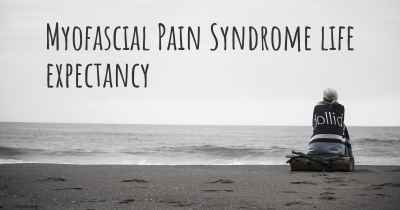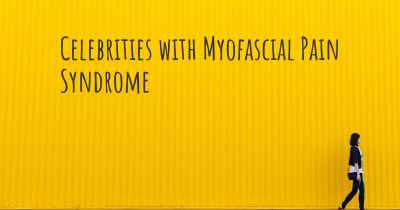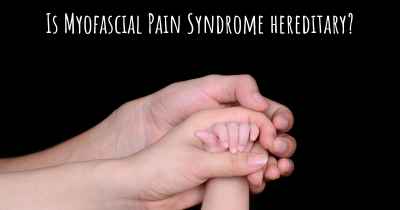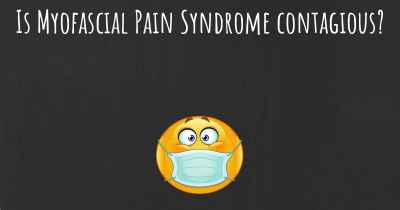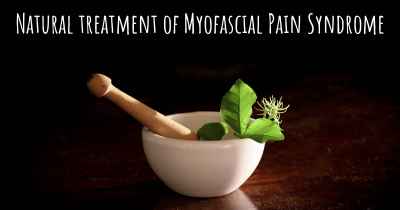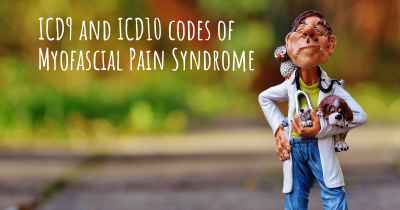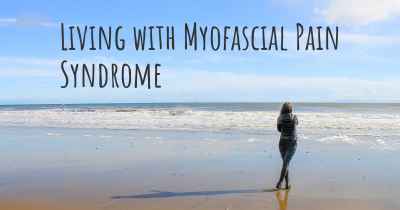Which are the causes of Myofascial Pain Syndrome?
See some of the causes of Myofascial Pain Syndrome according to people who have experience in Myofascial Pain Syndrome

Causes of Myofascial Pain Syndrome
Myofascial Pain Syndrome (MPS) is a condition characterized by the presence of trigger points in the muscles, which cause localized pain and discomfort. These trigger points are tight knots or bands of muscle fibers that can be felt under the skin. While the exact cause of MPS is not fully understood, there are several factors that are believed to contribute to the development of this condition.
1. Muscle Overuse and Repetitive Strain
Muscle overuse and repetitive strain are common causes of Myofascial Pain Syndrome. Engaging in activities that require repetitive motions or prolonged muscle use can lead to the formation of trigger points. This can occur in both occupational and recreational settings. For example, individuals who perform repetitive tasks at work, such as typing or assembly line work, are at a higher risk of developing MPS. Similarly, athletes who engage in repetitive movements, such as runners or tennis players, may also be prone to developing trigger points.
2. Muscle Imbalances and Poor Posture
Muscle imbalances and poor posture can contribute to the development of Myofascial Pain Syndrome. When certain muscles become weak or tight, it can disrupt the natural alignment of the body, leading to increased stress on specific muscles. This can result in the formation of trigger points. Poor posture, such as slouching or hunching over, can also put excessive strain on certain muscles, leading to the development of trigger points over time.
3. Trauma or Injury
Trauma or injury to the muscles can trigger the development of Myofascial Pain Syndrome. Accidents, falls, or sports injuries can cause direct damage to the muscles, leading to the formation of trigger points. Additionally, surgeries or medical procedures that involve muscle manipulation can also contribute to the development of MPS. The trauma or injury disrupts the normal muscle function, causing the formation of trigger points and subsequent pain.
4. Stress and Emotional Factors
Stress and emotional factors can play a role in the development and exacerbation of Myofascial Pain Syndrome. Stress can lead to increased muscle tension and tightness, which can contribute to the formation of trigger points. Emotional factors such as anxiety, depression, or unresolved emotional trauma can also manifest as physical symptoms, including the development of MPS. The mind-body connection is complex, and emotional stressors can have a significant impact on muscle health.
5. Lack of Physical Activity
Lack of physical activity or a sedentary lifestyle can contribute to the development of Myofascial Pain Syndrome. When muscles are not regularly engaged in physical activity, they can become weak and tight. This can lead to the formation of trigger points. Regular exercise and movement help to maintain muscle health and prevent the development of MPS.
6. Other Medical Conditions
There are several other medical conditions that can contribute to the development of Myofascial Pain Syndrome. These include fibromyalgia, chronic fatigue syndrome, rheumatoid arthritis, and certain autoimmune disorders. These conditions can cause widespread muscle pain and inflammation, which can lead to the formation of trigger points.
It is important to note that the causes of Myofascial Pain Syndrome can vary from person to person, and often, multiple factors contribute to its development. Identifying the underlying causes of MPS is crucial for effective treatment and management of the condition.
